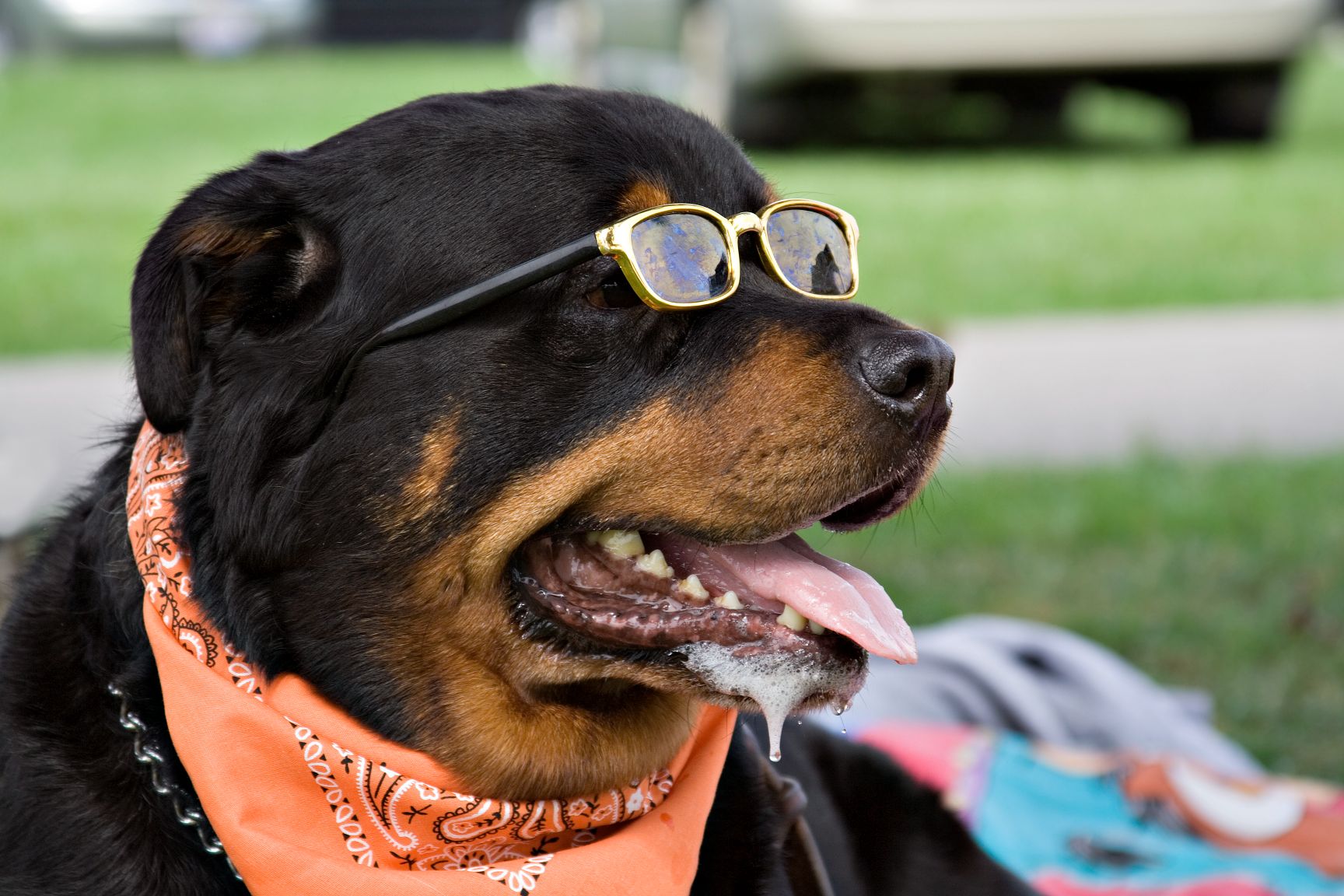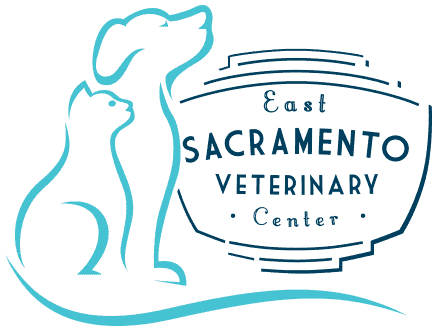Why Do Dogs Drool?

A sloppy kiss from a loving dog brings joy to the souls of pet lovers everywhere. We wouldn’t tolerate such messiness from affectionate humans. When our pets shower us (literally) with affection, we love them even more. But should our dogs be quite so slobbery?
Doggie Drool, Is It Love or Something Else?
Dogs are creatures of routine. As we grow with our furry loved ones, we learn to recognize when something isn’t quite right with them. Excessive drooling may be a feature of your pet’s breeding, or it could be a sign of an underlying health issue which could include dental, throat, or kidney problems.
If your pup is drooling more than normal, call us at East Sacramento Veterinary Hospital, (916) 347-5358.
Loose Lips & Droopy Jowls Are Hallmarks of a Slobbery Breed
Some dogs drool more than others because their cheeks (jowls) and lips have a large capacity for holding saliva. At full capacity, the saliva overflows, and they drool. Breeds known for heavy drool output include:
- Basset hound
- Bloodhound
- Boxer
- English bulldog
- Great Dane
- Great mastiff
- Great Pyrenees
- Newfoundland
- Saint Bernard
- Shar pei
My Dog Is a Heavy Drooler. How Can I Know If His Drooling is Normal?
If your dog is ill, he’ll show symptoms of discomfort and other behavior changes along with increased drooling. Consider your dog’s immediate environment before worrying about excessive drool:
- Are you traveling by car with your pet? He might be drooling because of motion sickness.
- Are you grilling steaks? Your dog might be in high salivation mode from the delicious smell of your dinner.
- Is your youngest child home from college? Your pet could be drooling from unbounded excitement!
These are all signs of normal saliva production kicked up a notch because of an upset tummy, yummy smells, and the thrill of a loved one’s return home.
Excessive Drooling—Bad Teeth and Other Oral Health Concerns
There are many serious health concerns related to your pet’s increased drooling. Signs to watch for include:
Changes in eating—If your puppy’s teeth, gums, or throat are sore, your pet will not want to eat.
Heightened aggression—When your dog is ill or hurting, he may try to protect himself by becoming aggressive.
Rubbing or pawing at his face—This behavior could indicate oral health issues such as growths, gum disease, a broken or abscessed tooth, or something stuck in a tooth or gum.
Stops eating—Call us immediately if your pet stops eating or drinking.
Excessive Drooling—When To See the Vet
Your pet could have acid reflux or kidney problems or be suffering from heatstroke. Increased drooling is a symptom that tells you something is not right with your pet:
- Bloat—Bloat, or twisted stomach, is a serious, life-threatening, emergency condition. Although the cause of bloat is not known, it can be brought on by eating or drinking too fast. Bloat can kill your pet quickly. Get your pet to us immediately if you see these symptoms:
- Increased drooling
- Pain in abdomen
- Extended abdomen
- Vomiting
- Kidney or liver disease
- Gastrointestinal disorders
East Sacramento Veterinary Hospital Staff and Vets Are Here for You!
Our veterinarians and staff are experts in pet care. We are here for you and your pets for regular checkups, vaccinations, changes in diet, and overall health support. When you have questions about changes in your pet’s behavior or appearance, do not hesitate to contact us.
